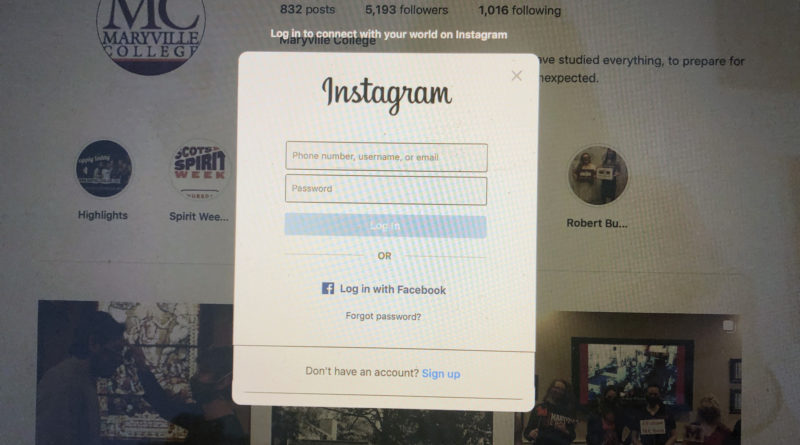Stepping off social media: Disconnection doubled in a pandemic.
About two weeks after my September departure from social media, I had a wonderful interview with SGA Vice President Maddie Taylor about some new SGA policies and how their organization has been able to work through the pandemic. One question I made sure to ask was how they were getting information out to students about what was happening or being talked about in their meetings.
“To be completely honest, social media has been our sole way of communicating,” said Taylor.
SGA isn’t the only organization or branch of Maryville College that has made social media its primary form of connection to students–many clubs and even whole dorm communities have had to complete almost a full transition to social media to maintain the connection between students due to the pandemic. While somewhat a last resort during these times, lack of physical communication has brought some challenges to living as a student without social media.
Before deleting, I made note of happenings on campus almost always through my screen. I kept up to date with SGA, the Carnegie-Beeson Instagram, President Coker’s move to Maryville, exhibits and events at the Clayton Center, news from the Echo, what all the clubs I followed would be hosting each month, and of course, what Hugh Manatee was up to each week. I was in at least three different class group chats on Snapchat. After deleting, just about all of that was suddenly gone from my fingertips. Some things I could search out on the college’s website, but huge chunks of information and ways of connecting with friends and peers were just not directly accessible to me anymore. I slowly accepted that if I wanted to stay social media-free, there would just be parts of Maryville College that I would be missing out on.
In a pandemic, already isolated and restricted from in-person socialization, these missing pieces have certainly stood out to me. College is supposed to be a time with strong community and fun, and as we know, that has been a particularly difficult bond to maintain with COVID. To work around these issues with physical distancing and group events, just about everyone has turned to the online realm for classes, communicating, sharing, and consuming. Last summer I relied so heavily on social media to replace real life connection, so yanking it away from myself only magnified the true loss of community during the pandemic. I had been disconnected from the physical senses and from the online sense of being a college student on Maryville campus. While I am still unequivocally happy with my decision, I now question how another six months of being extra reliant on social media for connection would have affected me.
In theory, turning to social media right now seems like the next best thing and can even be helpful for those feeling alone. But I have to wonder if the popular reliance on social media leaves out those who might choose not to participate in it. And for those who do, is it healthy and sustainable to be dependent on this type of technology?
In my next article, I will go further in depth about the potential detrimental effects of social media, what contributed to my anxieties, and why lessening reliance on social media could be helpful for mental health, especially in a pandemic.


Thank you for this analysis of both the pros and cons of the social media realm for colleges. There is definitely more work to do on campus to make information more accessible. Excited to read your next article!
Excellent perspective on disconnecting. The misleading glamour, excitement and allure of other people’s posts on social media gave me anxiety for the longest time. It can even lead to depression. “Comparison is the third of joy.” It can be so freeing to unplug and focus on yourself for a while.